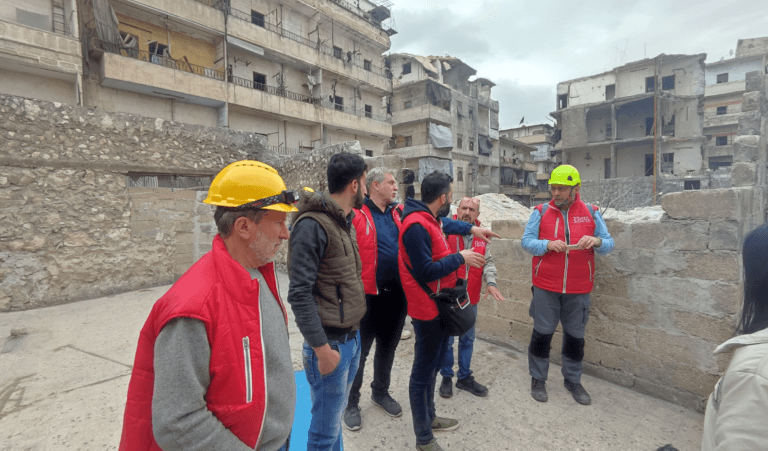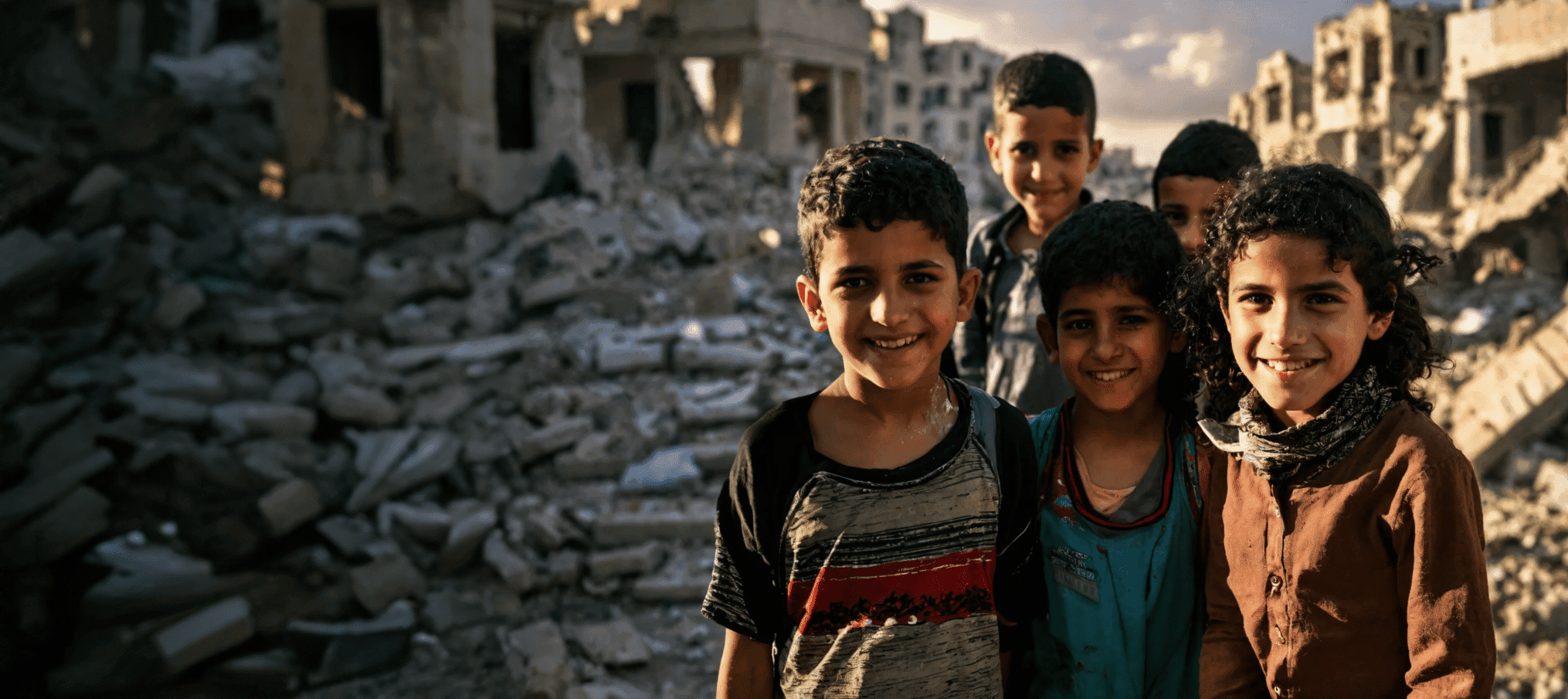The consequences of the strong 7.8 magnitude earthquake that struck Turkey and Syria four months ago have been devastating. To date, there have been over 59,000 casualties, with more than 121,000 people injured and at least 5 million displaced. In Syria, hundreds of dilapidated buildings have crumbled amidst the ruins of the civil war. Many of the affected areas are located in the northern part of the country, where rebel forces against the Bashar al-Assad regime still control several zones. "These are the ruins of a house collapsed due to the civil war. I know because moss has grown between the stones and glass," says a survivor of the earthquake in East Aleppo.


Immediate response
We have extensively reported on the first phase in the past months, with aid efforts mainly focused on the Syrian cities where we have operational centers and the friars' parishes. The first emergency was to provide shelter for the thousands of displaced people who flooded the streets in the heart of the night on February 6th.
During a time of severe crisis, the support received was crucial in demonstrating solidarity and offering tangible assistance to the many people who lost everything.
In the two months following the earthquake, thanks to the collaboration between Pro Terra Sancta and the Franciscan Friars, over 5,000 people were assisted. Food and non-food items were distributed using the spaces in our offices, reception centers, convents, churches, and mosques. More specifically, in the months of February and March, 2,350 blankets and clothing items were distributed to families and the elderly, and 1,200 people received a hot meal every day in the soup kitchen in Aleppo.


Phase Two
"In the second phase, which we can say started in mid-April, we began a proper assessment of all severely destroyed or damaged houses in the outskirts of Latakia, central Aleppo, Aleppo East, and the villages in the Idlib area," says Giacomo Gentile, responsible for Pro Terra Sancta projects in Syria.
The evaluation work was carried out by a team of Italian and Syrian engineers who have been working in the cities of Aleppo and Latakia since the early days of March, where Pro Terra Sancta implements its main projects. After verifying the habitability of over 300 homes, the organization began studying the reconstruction phase in collaboration with local authorities. Currently, Pro Terra Sancta and the friars participate in the government task force called "Syrian Trust for Development", a commission that brings together all municipalities to assess the rebuilding of buildings, as well as the "Middle East Council of Churches,"a government-recognized commission composed of representatives from Christian churches.
After an initial assessment of the damages, it was found that in the village of Knaye, 70% of houses are damaged with medium to severe damage, in the village of Yacoubieh, 30% of houses are completely destroyed, and finally, in the village of Jdaideh, 40% of houses have been heavily damaged.


Pro Terra Sancta's commitment to reconstruction
Pro Terra Sancta has begun the rehabilitation work on 10 houses, including the Terra Sancta College in West Aleppo, 130 houses between Aleppo East and Aleppo-Azizieh, and 105 houses in Latakia. Additionally, in the Idlib area, in the villages of Knaye, Yacoubieh, and Gassanieh, the local authority has entrusted the Latin friars with the task and responsibility of assessing the damages in the houses of all Christian communities in the area (Latin and other Christian congregations). An assessment has also been made on about 25-30 houses of needy Muslim families, mainly from the village of Malen.
The selected houses have been divided into three categories to better organize the timeline and funds. Pro Terra Sancta has undertaken the repair of at least 150 houses throughout 2023.
"In the past two months, work has started in approximately fifty houses, involving some local engineering companies. Furthermore, our intention is also to try to help 4,000 adults and children through psychological support activities," concludes Giacomo. Finally, despite the earthquake damaging some of our operational structures, we have strengthened our psychological support activities, especially for the younger ones, who have been further affected by this earthquake.




















